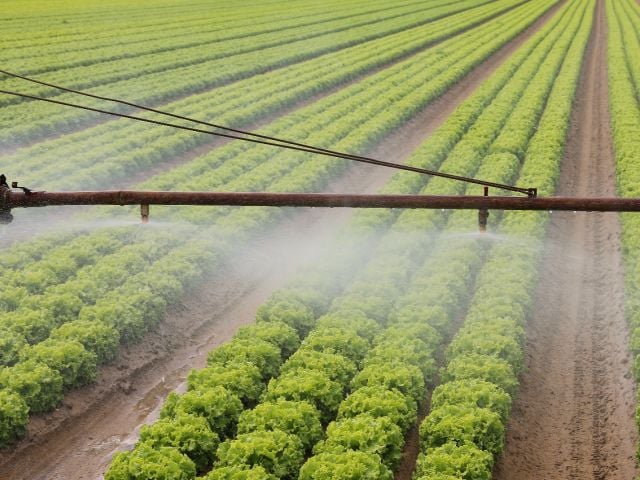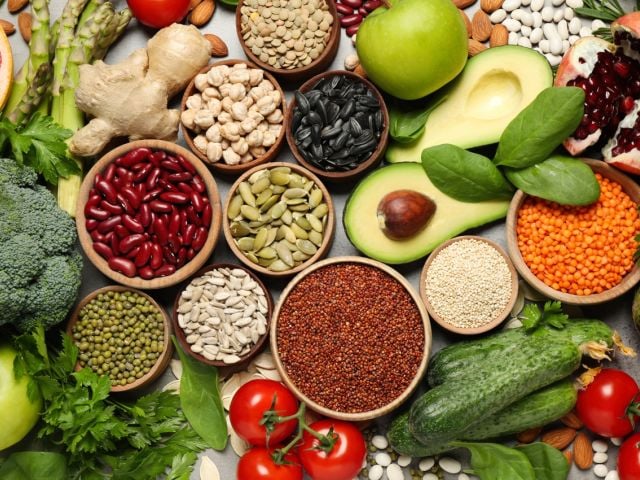As we’ve done in past years, EWG’s editors asked the entire staff to pick the top agriculture-related stories of 2013, a category that includes the farm bill, farm subsidies, crop insurance, conservation, genetically engineered crops and food and several other related topics.
Given the amount of effort EWG’s researchers and government affairs staff have put into pushing for reform of American farm and food policies, it’s hardly surprising that various aspects of this story got by far the most votes. But stories about labeling genetically engineered foods and the destructive federal corn ethanol mandate were close behind.
1. Even among the farm bill-related stories, there was one clear favorite – EWG’s own research showing that between 1995 and 2012, at least 50 billionaires, or businesses in which they had a financial stake, collected farm subsidy “direct payments.” The findings were based on EWG’s Farm Subsidy Database and the Forbes magazine list of the 400 richest Americans. The story was picked up widely, and EWG followed with several related blogs and analyses. It’s likely that the long-discredited “direct payment” subsidies will finally die in a new farm bill, but at the same time Congress seems poised to expand extravagant crop insurance subsidies. Billionaires will probably profit from those as well, but there’s no way to know. Congress has ordered the U.S. Department of Agriculture not to release the names of crop insurance subsidy beneficiaries, billionaires included.
2. The second most important ag story of the year, according to EWG staff, was the hard-fought consumer campaign in Washington state to require the labeling of foods with genetically engineered ingredients. Food companies and conventional farming interests spent $20 million to defeat the initiative, and they succeeded, narrowly. But the story isn’t over. The Maine and Connecticut legislatures have passed measures to require GMO labeling, though neither has yet taken effect, and proposals are pending in a number of other states.
3. Among the most contentious provisions in the pending farm bill are proposals to cut anywhere from $4 billion to $40 billion from the Supplemental Nutrition Assistance Program (SNAP), which used to be called food stamps. EWG’s blogs, along with numerous stories in the mainstream media, contrasted politicians’ eagerness to shrink SNAP with their support for fatter farm subsidies, and also highlighted the heightened income inequality in districts receiving the most farm subsidies.
4. Back last summer, the House of Representatives first rejected its Agriculture Committee’s deeply flawed farm bill, with its heavy cuts to SNAP, and then voted to strip the nutrition program completely from the legislation and pass a farm-only billsparking outrage in many quarters.
5. The use of corn ethanol in gasoline is now being critically re-examined (See #7). The Associated Press’ Dina Cappiello and Matt Appuzo took a hard look at how the policy has led to rampant plowing up of wetlands and wildlife habitat and widespread water contamination. Their story got high marks from EWG’s staff.
6. Speaking of the pell-mell disappearance of America’s prairies and wetlands driven by the federal ethanol mandate and record high prices for commodity crops, EWG did several deep dives of its own on this disastrous trend over the year.
7. EPA’s proposal to lower the amount of ethanol that must be blended into gasoline this year under the Congressionally-mandated Renewable Fuel Standard was a important development as opposition grows to this misguided policy.
8. During the debate over the farm bill and cutting food stamps, Rep. Stephen Fincher. R-Tenn., managed to set a new standard for hypocrisy when he quoted the Bible out of context to justify SNAP cuts while happily collecting millions in farm subsidies himself. EWG’s staff couldn’t resist this one.
9. An EPA study strongly supported previous research by EWG and others when it concluded that industrial agriculture is the major reason that 55 percent of the nation’s river and stream miles are in poor condition. The issue of water quality has been and will continue to be a major focus for EWG.
10. In September, EWG updated its series of “City Slickers” reports on how much farm subsidy money has been going to residents of American cities, where tractors and harvesters are seldom seen but USDA’s “direct payments” land in hundreds of mail boxes. This one always generates a wave of stories and editorials in the mainstream press, making it #10 on EWG staff’s list of 2013’s top agriculture-related stories.



.jpg?h=827069f2&itok=jxjHWjz5)